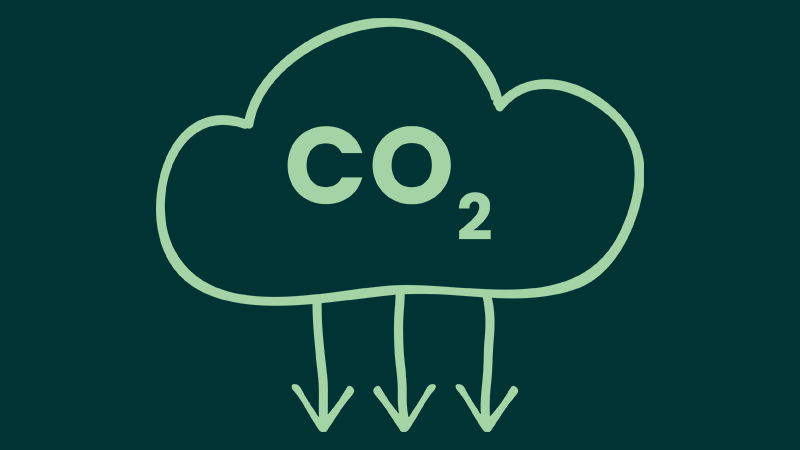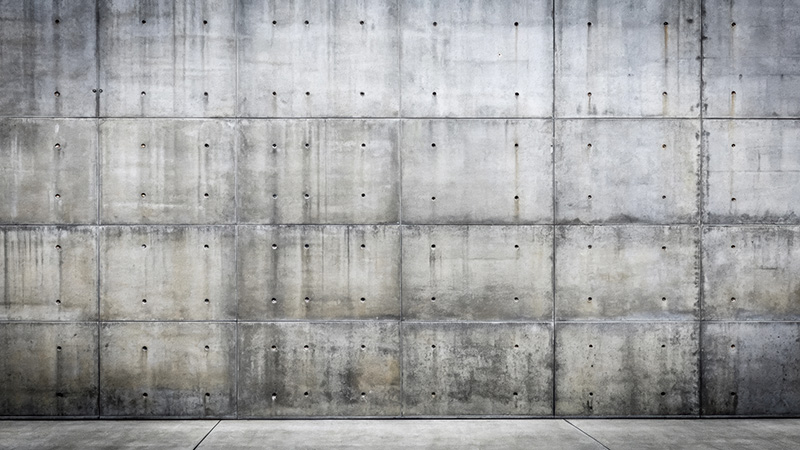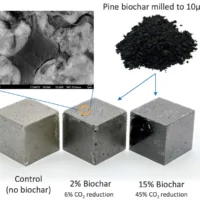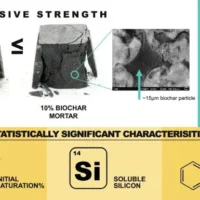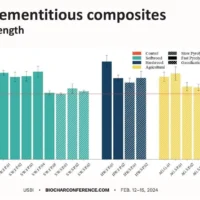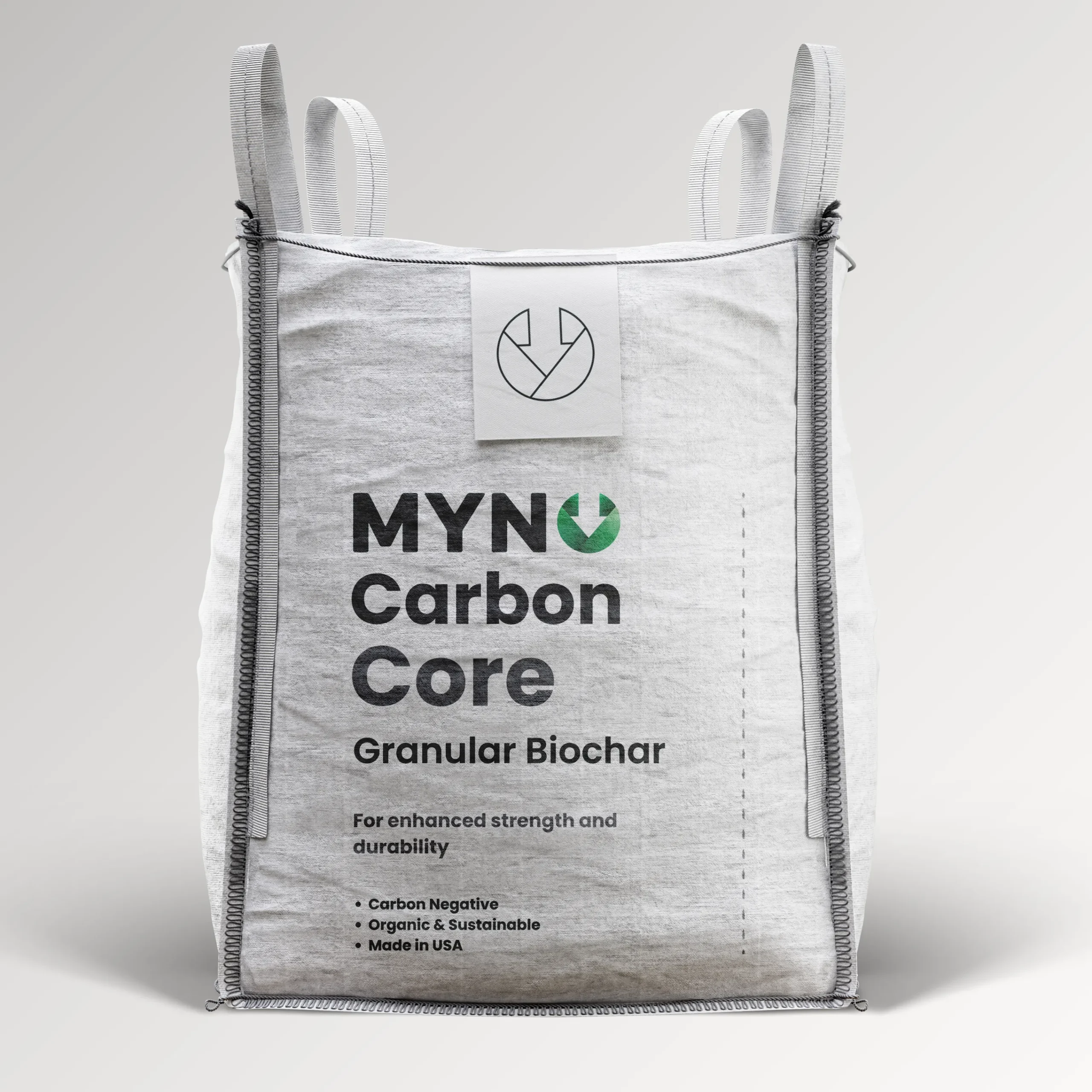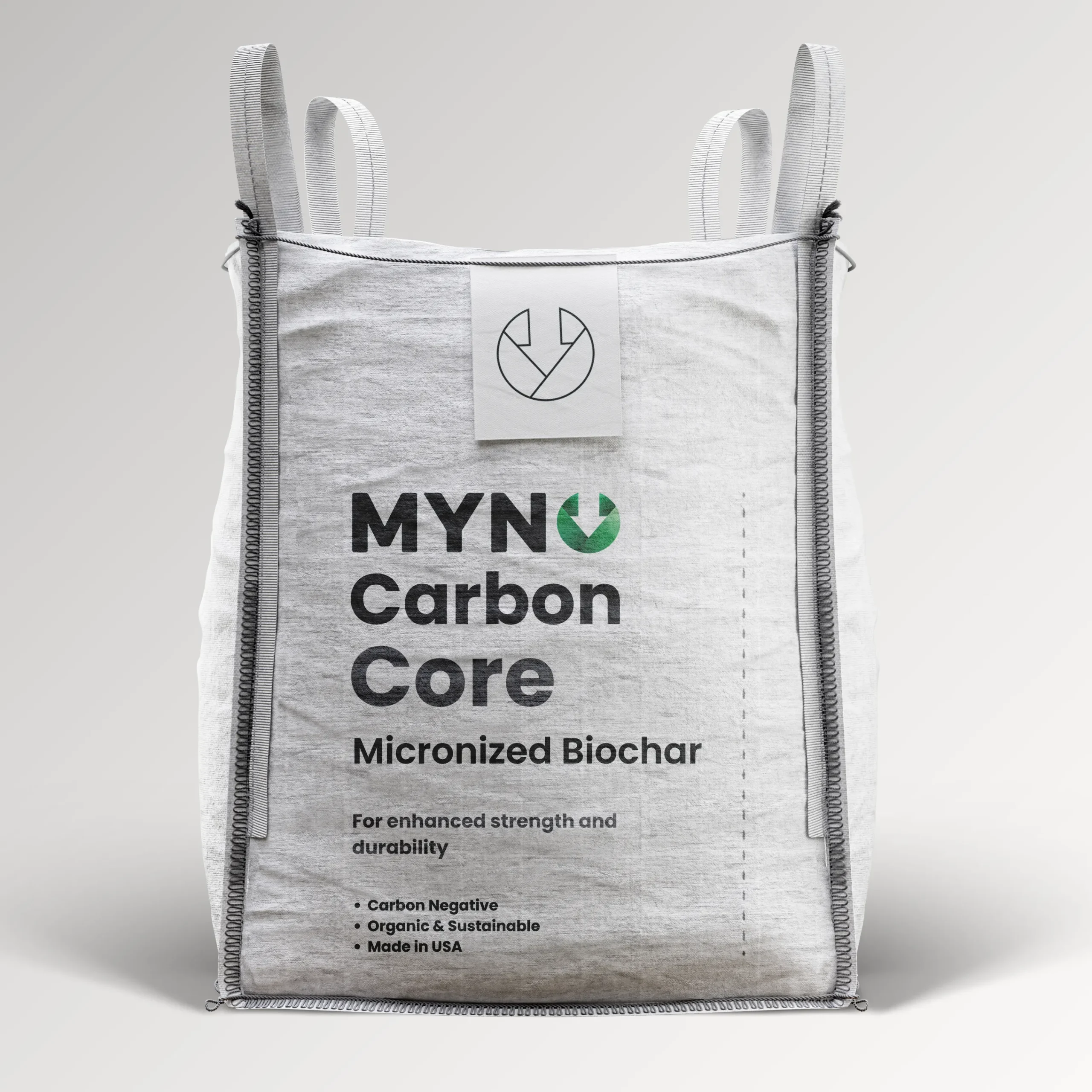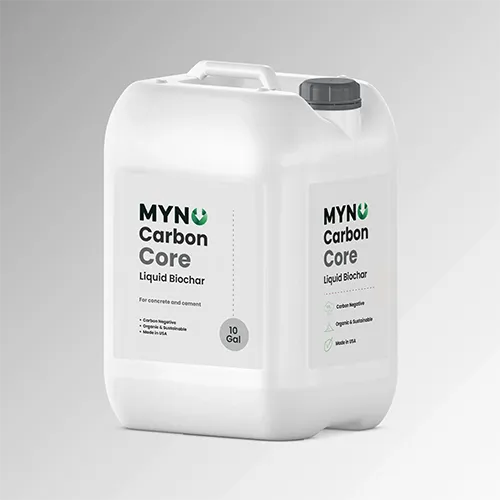Biochar: a sustainable alternative in concrete & asphalt
Biochar has significant potential to decarbonize the construction industry by serving as a sustainable partial substitute for cement in concrete, and as a sustainable partial substitute for bitumen in asphalt binders. In both cases, the use of biochar can improve the technical performance of the resultant concrete and asphalt. By incorporating biochar, construction projects can significantly lower their carbon footprint while enhancing material performance.
Biochar enhanced concrete delivers improved strength, durability, and thermal insulation, making it an ideal choice for eco-friendly building solutions. Asphalt with a biochar-modified bitumen binder delivers enhanced resistance to aging, freeze-thaw cracking, and rutting, as well as improved strength, stiffness, and moisture resistance.
In concrete and asphalt biochar use significantly reduces greenhouse gas emissions and lays the foundation for a more sustainable and innovative construction industry.
